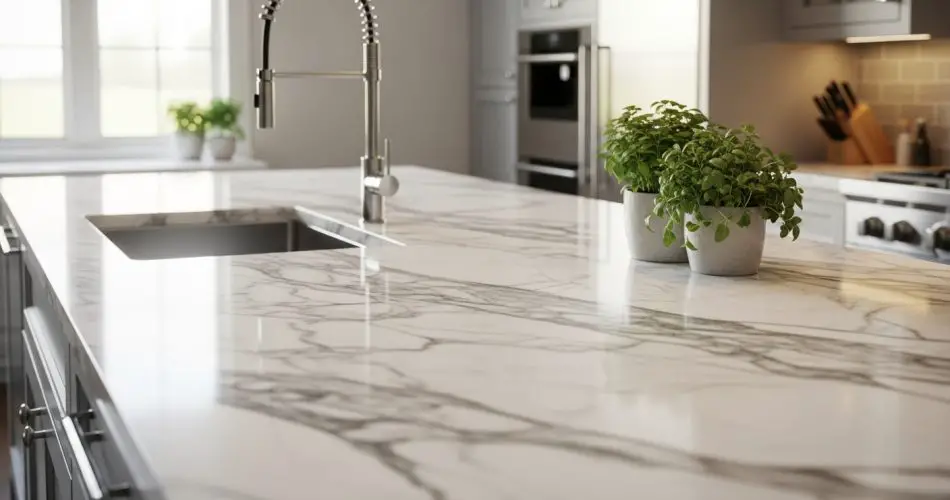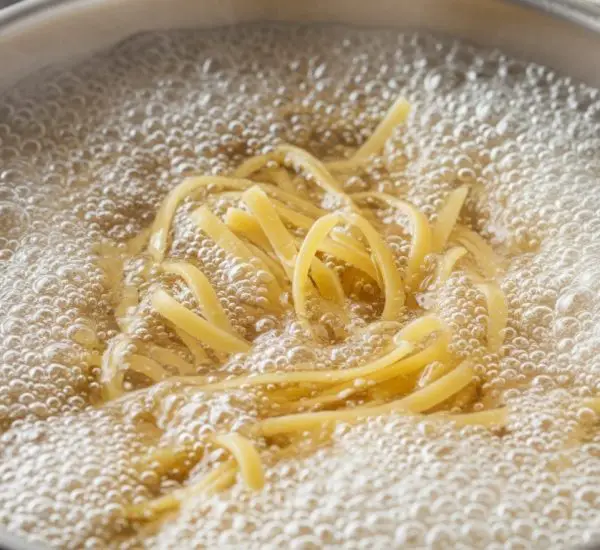Marble surfaces are among the most elegant and timeless design choices for any home. Whether in kitchens, bathrooms, or living rooms, marble brings sophistication and character to every space. Its unique veining patterns and color variations create an atmosphere of refined beauty that few other materials can match. Each piece of marble is truly one of a kind, and that is part of its enduring charm. However, this luxurious material requires proper care and attention, as it is also very sensitive to staining.
If you have marble countertops or floors, you already know how easily they can absorb liquids and oils, leading to stains that seem impossible to remove. Fortunately, there are simple, natural methods to clean and restore marble surfaces without resorting to harsh chemicals that might cause further damage.
Below, we’ll explore why marble stains so easily, how to prevent it, and what natural cleaning techniques you can use to safely remove even the toughest marks.
Understanding Why Marble Stains
Marble is a porous stone, meaning it naturally absorbs liquids and oils that come into contact with its surface. This absorption can cause deep staining if not treated promptly. Because of its chemical composition—mostly calcium carbonate—marble reacts strongly to acidic substances, which can etch or dull its polished finish.
Common household items such as lemon juice, vinegar, wine, coffee, and even tomato sauce can easily leave permanent marks if they sit on the surface too long. Similarly, colorful spices like turmeric or paprika can seep into the pores of the marble and discolor it. Even sugary drinks and carbonated beverages can damage the material over time.
This sensitivity is why marble requires not only regular maintenance but also gentle care. Using the wrong cleaning products—especially those containing acids, bleach, or ammonia—can worsen the problem, stripping the stone of its natural shine and leaving a rough texture.
How to Prevent Stains on Marble
The best way to keep marble surfaces beautiful is to prevent stains before they happen. Prevention begins with mindfulness—being cautious when handling foods, beverages, or cleaning agents near marble countertops or tables.
Here are a few essential tips to keep your marble looking perfect:
-
Seal the marble surface – Applying a high-quality marble sealer forms a protective layer that reduces the stone’s absorbency. This makes it easier to clean up spills before they penetrate the surface. The sealer should be reapplied periodically, depending on how often the surface is used.
-
Clean spills immediately – Don’t let liquids sit on the marble, even for a few minutes. If something spills, blot (don’t rub) it with a soft, damp cloth right away.
-
Avoid acidic or abrasive cleaners – Never use vinegar, lemon, or harsh chemicals to clean marble. These substances can dull or etch the finish.
-
Use coasters and placemats – Prevent rings and marks from cups or bottles by always using coasters. When cooking, place cutting boards or trays beneath ingredients that might stain.
By following these steps, you can significantly reduce the risk of staining and maintain the marble’s natural brilliance.
Natural Ways to Remove Stains from Marble
Even with the best care, accidents happen. Fortunately, you can remove most marble stains with a few simple, natural methods that are both effective and gentle. Here are some trusted remedies you can try:
1. Warm Water and a Soft Cloth
For fresh stains like coffee, juice, or wine, the simplest method is often the best. Take a soft, non-abrasive cloth and soak it in warm water. Gently dab (don’t scrub) the stained area until the mark begins to fade. Then, use a dry cloth to remove any excess moisture. This method works well for mild stains caught early.
2. Hydrogen Peroxide
For tougher stains, hydrogen peroxide is a great option. Known for its disinfecting and mild bleaching properties, this solution can help lift organic stains from marble without harming the surface. Pour a small amount of hydrogen peroxide onto a soft cloth and gently press it over the stained area. Leave it for a few minutes, then wipe it off without rubbing. Always test it on a hidden spot first to ensure it doesn’t affect the color.
3. Baking Soda Paste
Baking soda is one of the most versatile natural cleaning agents—and it works wonders on marble when used correctly. Instead of sprinkling it directly on the stain (which could scratch the surface), mix it with a small amount of water to form a smooth paste. Apply the paste over the stain and cover it with plastic wrap. Let it sit for a few hours, or even overnight for deeper stains, then wipe it away with a damp cloth. The baking soda will help lift and neutralize discoloration while restoring shine.
4. Marseille Soap Solution
If you prefer a gentler cleaner, traditional Marseille soap is an excellent alternative. This natural soap, made from olive oil, is effective at cleaning without damaging marble. Mix a few flakes of the soap with warm water to create a soapy solution. Dip a soft cloth in the mixture, gently clean the stained area, then rinse and dry with a clean towel. This method not only removes stains but also nourishes and brightens the marble.
Additional Tips for Maintaining Marble Surfaces
-
Always dry the surface after cleaning. Leaving water or moisture on marble can cause dull spots or streaks.
-
Polish occasionally. Use a marble-safe polish to restore the stone’s natural luster.
-
Avoid placing hot items directly on the marble. Heat can weaken the surface or cause cracks over time.
-
Clean regularly. Dust and wipe your marble surfaces weekly using a soft, damp cloth to prevent buildup.
Final Thoughts
Marble may require a bit of extra care, but the effort is well worth it. Its timeless beauty and luxurious texture can transform any room into a sophisticated and welcoming space. By using gentle, natural cleaning methods—like hydrogen peroxide, baking soda, or Marseille soap—you can effectively remove stains without damaging your marble.
With a little attention and the right techniques, your marble surfaces will remain spotless, polished, and elegant for years to come—just as nature intended.



